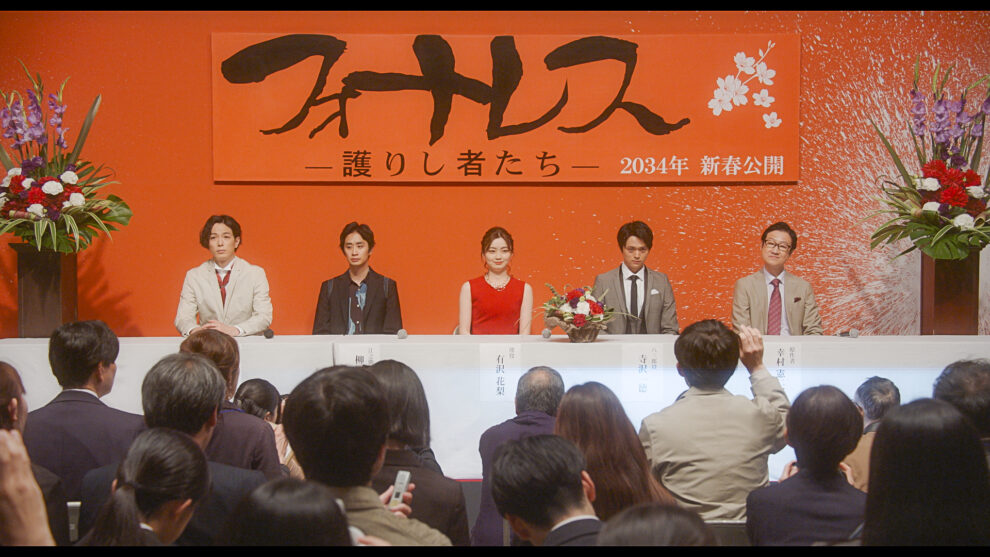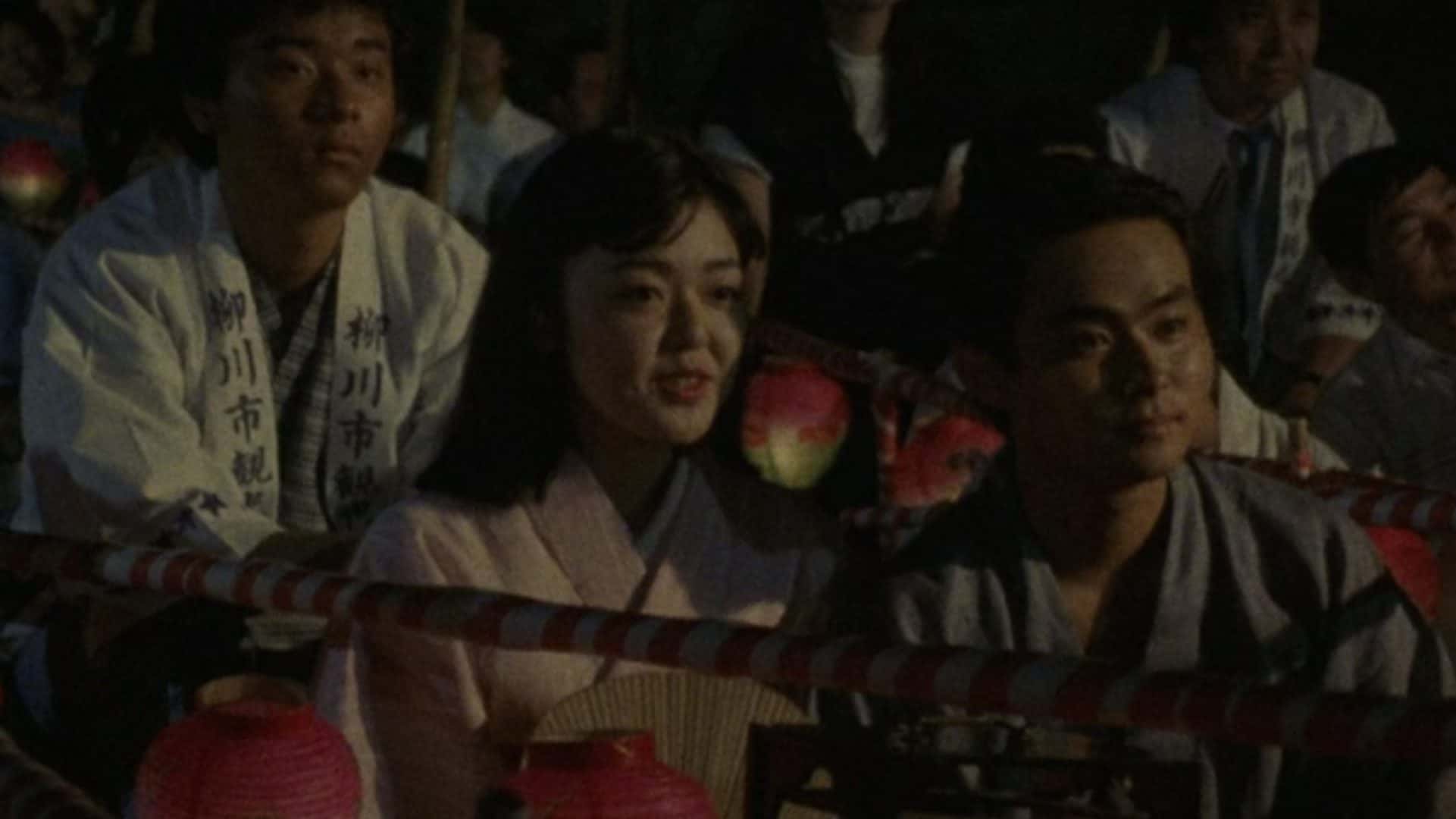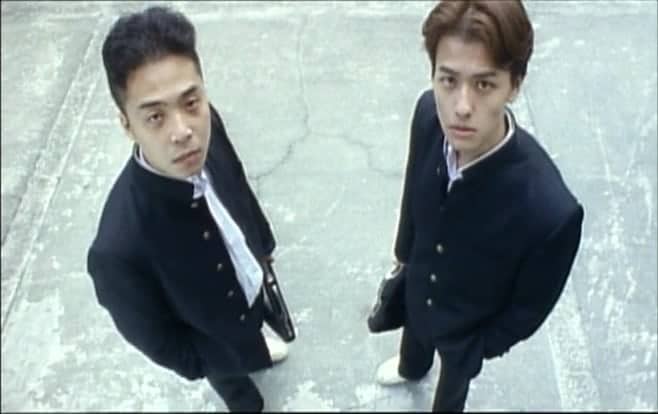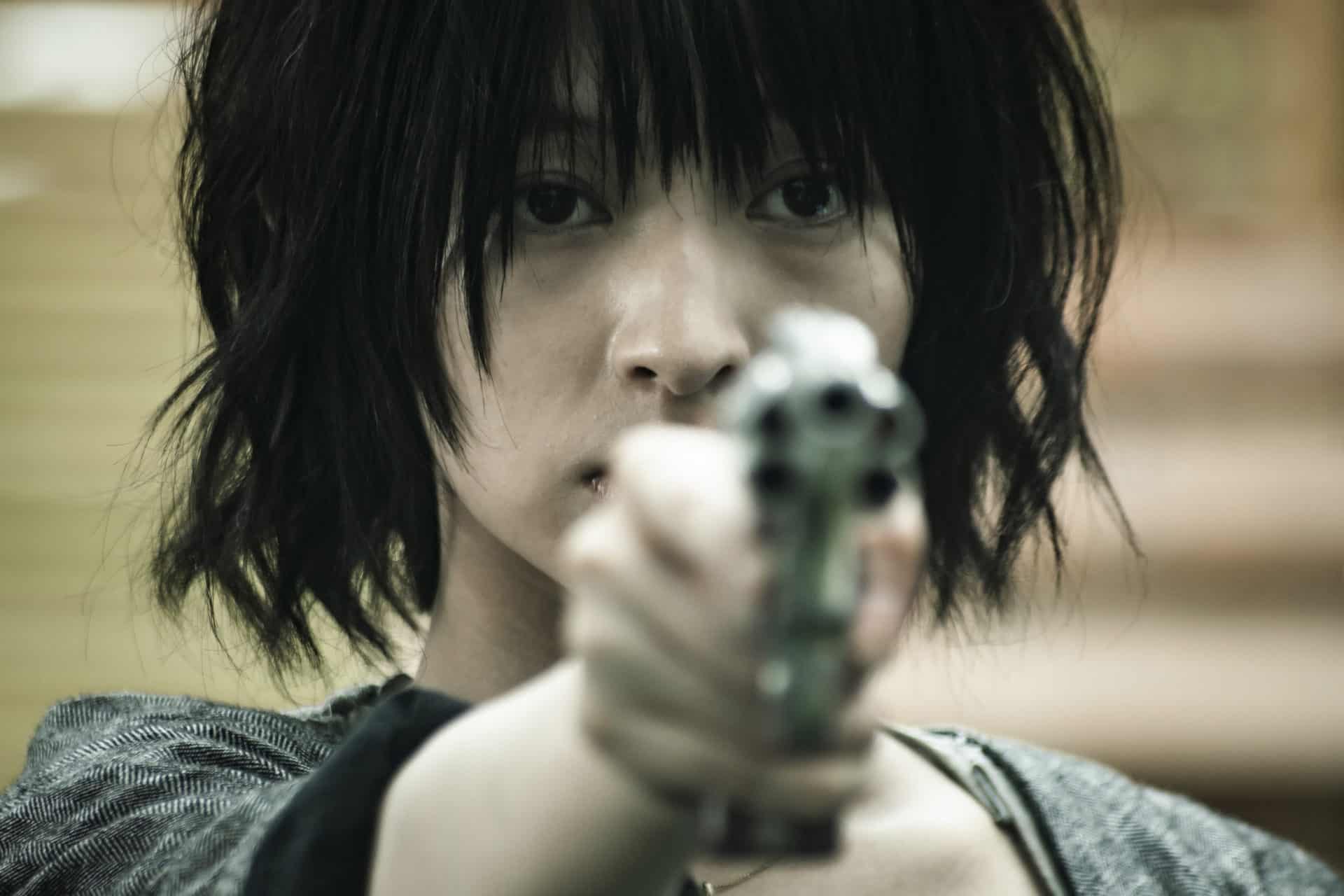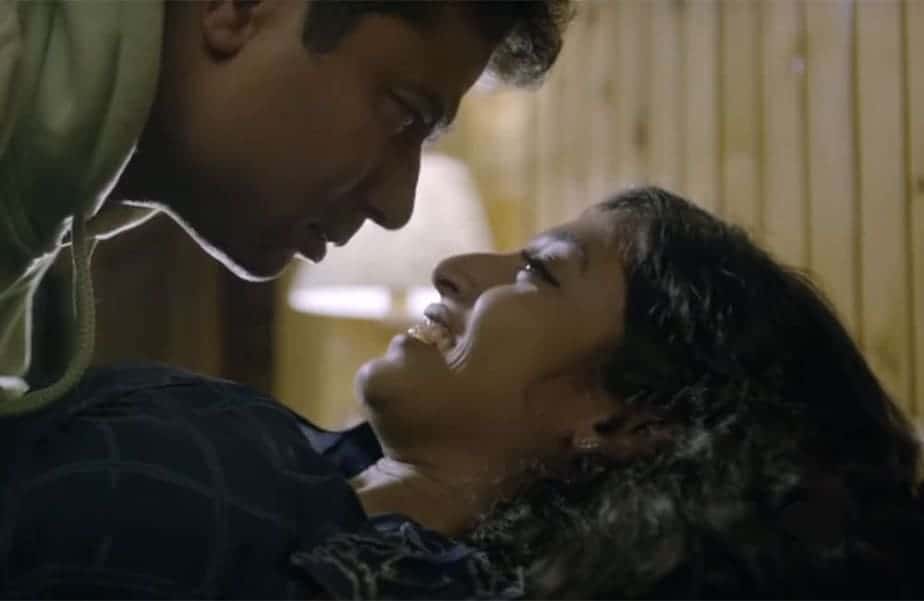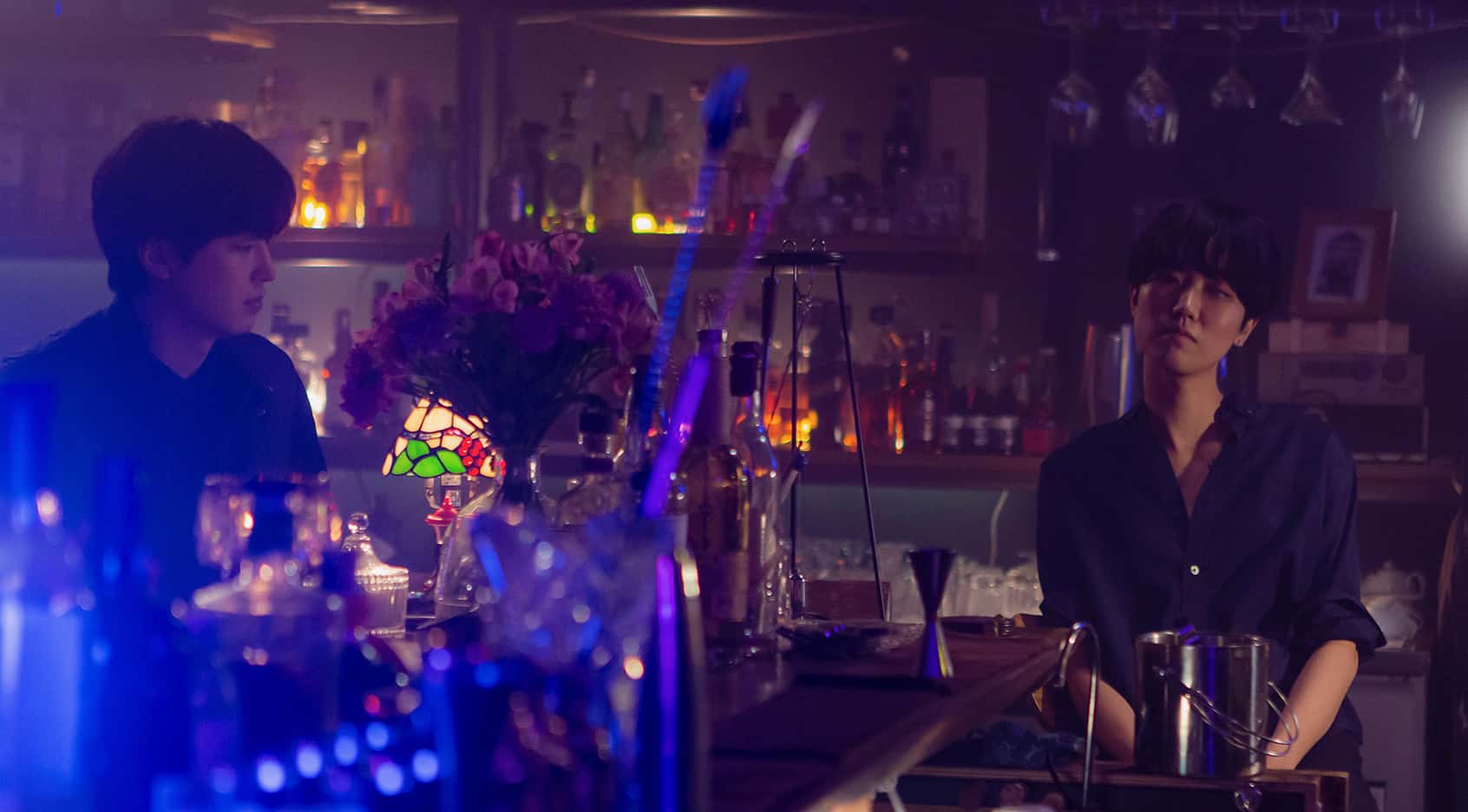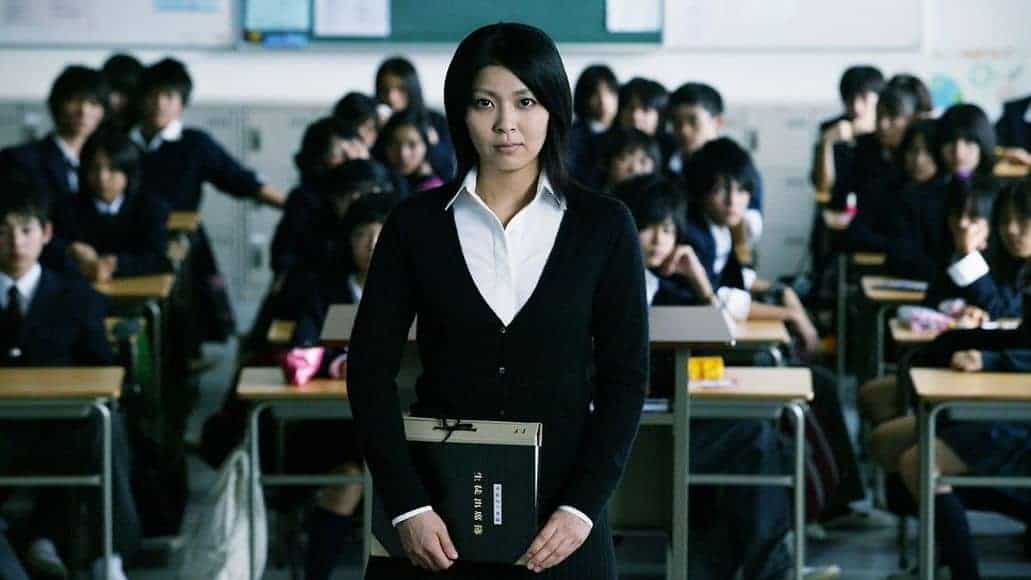The concept of the second chance has always been an audience favorite in cinema, with a plethora of movies having regretful protagonists reliving their lives in an effort to correct their mistakes. Written by Ryuho Okawa (who is also executive producer) and directed by Hiroshi Akabane, “Before the Sunset” implements the trope in a setting that also includes a focus on show business. The film will receive a theatrical release from September 29 at select AMC Theatres across the U.S. and will also be released in more than 250 cinemas across Japan by Nikkatsu Corporation.
“Before the Sunset” review is part of the Submit Your Film Initiative
Known as the “God of Management,” Kazunori established an enterprise on his own and earned respect from society, but after his retirement, he is all alone and lonely at a nursing home, after his first wife died and he alienated his second and his three children. The only one who still visits him is Asuka Yamane, a college student volunteer, which is the reason the elder man, one day in late Autumn, decides to share his whole life story and particularly his many regrets. Deeply saddened, Asuka asks God to grant Kazunori one wish, and he then asks to be 20 years old again. Moments later, he finds himself being of the particular age, and the star goalie of his college football team, where Asuka is a frequently bullied assistant. Despite the fact that in that life, the two were never actually acquainted, Kazunori takes her under his wing, while she introduces him to her father, Shintaro, a stage play director of a troupe she also acts in. Kazunori is determined not to make the mistakes of the past again, but change is not as easy as he thought.
Hiroshi Akabane directs a movie that unfolds into three different contextual axes. The first one revolves around young Kazunori's effort to avoid his past mistakes by taking a number of different turns in his life, with his choice to double as an actor apart from a footballer, being the first step. This brings us to the second aspect, with Akabane dealing with how the movie industry works, particularly regarding the casting of actors and the logistics troupes like Shintaro's face. Furthermore, as the story progresses, the comments also extend to cinema, in an aspect that results in an interesting comment, since Kazunori succeeds once more, by stating that some people have the mentality and talent to succeed in whatever they do. This comment, however, also moves into a negative direction, by additionally stating how difficult it is for people to change, even under these circumstances.
The third axis revolves around the relationship between Asuka and Kazunori, with her openly stating her love from the beginning, and him having to face a rule that is enforced upon him in order to continue living the particular life, and later on, his reluctance to move forward. This approach also emerges as rather interesting, with the way the two stay together, both socially and professionally, as much as the fact that her father takes a liking to him from the beginning, being a rather intriguing approach that works quite well for the movie.
This aspect benefits the most by the acting, with Hiroaki Tanaka as Kazunori and Rikako Miura as Asuka exhibiting a wonderful chemistry, that has her instigating him to do good, while staying in love with him, and him finding it difficult to make a decision before he is sure his life has changed. Syouzou Uesugi as Shintaro also stands out, with him being the main source of comedy in the film, but also of the commentary about how stage play troupes work.
Koichi Kimura's cinematography follows the rules of the Japanese mainstream, being too polished, too bright and too artificial in general, particularly in the way scenes as the one with the wish are portrayed. The presentation of the theater and everything that revolves around it is slightly better, in an approach though, that does become annoying after a fashion, adding to a sense of cheesiness that is found here and there in the movie, also heightened by the music. Takao Arai's editing on the other hand is quite good, with him implementing a relatively fast pace that adds to the entertainment the movie offers, while the plethora of flashbacks are well placed within the narrative, essentially explaining (justifying if you prefer) the protagonist's actions.
Despite some cliches and cheesiness here and there, “Before the Sunset” emerges as an easy to watch, entertaining movie, that also includes a number of unusual and intelligent elements that make it stand out.


